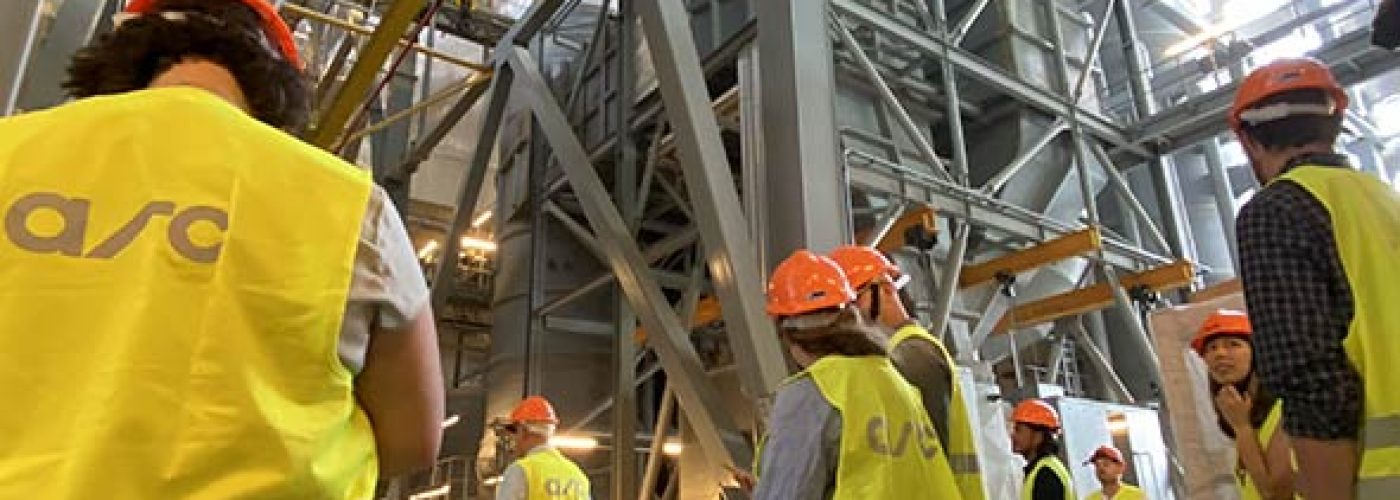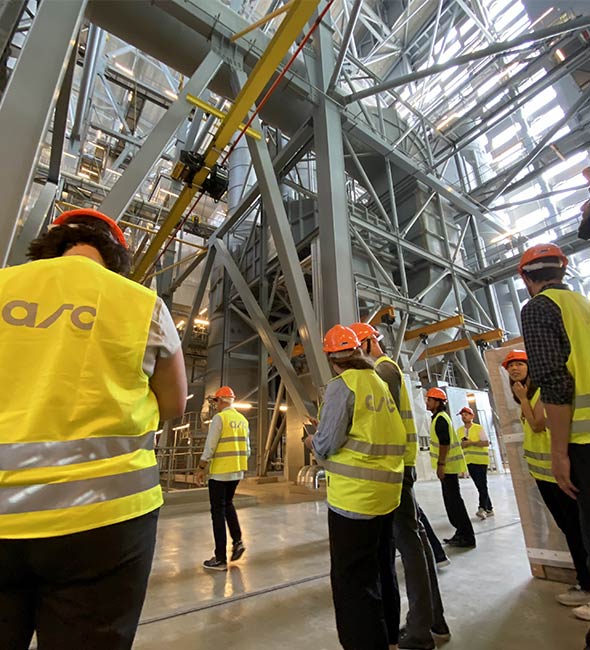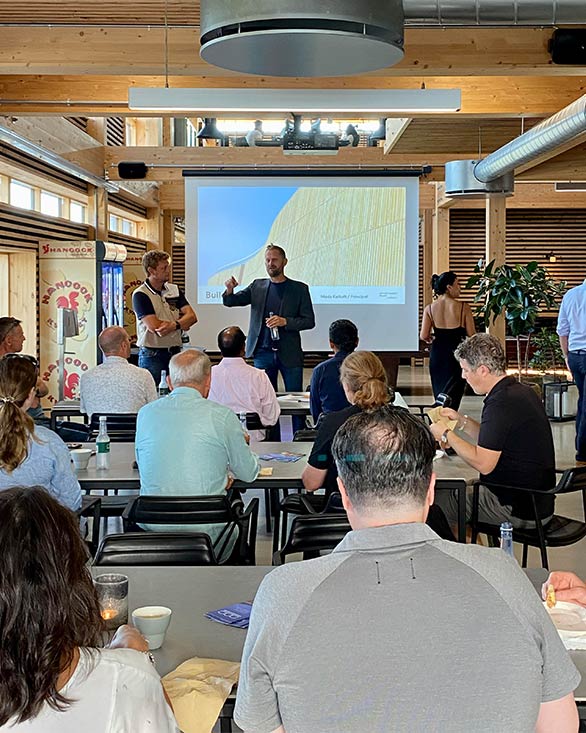Vancouver to Copenhagen Learning Tour
17 local leaders, policymakers and businesses went to Copenhagen, Denmark to learn about the Danish approach to building decarbonization, energy efficiency, and climate adaptation.


.hero-title {display:none;}
.hero {margin: 0px; padding: 0px; display: none;}
.new-hero-image {
background-image: url(“https://vancouvereconomic.com/wp-content/uploads/2022/12/Copenhagen-learning-tour-heo.jpg”);
max-height: 1300px;
aspect-ratio: 3/1;
background-position: center;
background-repeat: no-repeat;
background-size: cover;
position: relative;
}
.new-hero-title {
position: absolute;
bottom: 2rem;
left: 2rem;
color: #00143f;
width: 40%;
background: #ffffff;
padding: 2rem;
}
.h2-hero-text {font-weight: 800 !important; font-size: 34px; margin-top: 0px !important;}
.p-hero-text {font-size: 18px;}
.hero-nav{
background: #00143f;
border-width:1px 0;
list-style:none !important;
margin:0;
margin-top: 0px;
padding:0;
text-align:center;
padding-top: 10px;
padding-bottom: 10px;
}
.hero-nav li{
display:inline;
}
.hero-nav a{
display:inline-block;
padding:10px;
}
.five-column {
float: left;
width: 20%;
padding: 1em;
text-align: center;
}
.five-column-row:after {
content: “”;
display: table;
clear: both;
}
.big-number {
display: block;
margin-bottom: -20px;
color: #16bdce;
line-height: 1;
font-size: 80px;
font-family: ‘Ciutadella W04 Bold’;
}
.attendees {padding-top: 1em; margin-top: -5em;}
.attendees-two-col-flex-container {
align-items: center;
justify-content: center;
display: flex;
}
.attendees-two-col-flex-container-left {
float: left;
width: 50%;
padding: 2em;
text-align: center;
}
.attendees-two-col-flex-container-right {
float: left;
width: 50%;
padding: 2em;
}
.attendees-two-col-flex-container:after {
content: “”;
display: table;
clear: both;
}
.learnings {background: #eff3f5; padding-top: 1em;}
.learnings-two-col-flex-container {
justify-content: center;
display: flex;
}
.learnings-two-col-flex-container-left {
float: left;
width: 50%;
padding: 2em;
}
.learnings-two-col-flex-container-right {
float: left;
width: 50%;
padding: 2em;
flex: 1;
display: flex;
flex-direction: column;
}
.learnings-two-col-flex-container:after {
content: “”;
display: table;
clear: both;
}
.logo-box-25 {
width: 25%;
padding-top: 2em;
padding-left: 0em;
padding-right: 0em;
float: left;
text-align: center;
}
.logo-row {margin-bottom: 2em;}
.logo-row:after {
content: “”;
display: table;
clear: both;
overflow:visible !important;
}
@media screen and (max-width: 969px) {
.p-hero-text {display: none;}
.attendees {margin-top: -2em;}
}
@media screen and (max-width: 820px) {
.p-hero-text {display: none;}
.attendees {margin-top: -2em;}
}
@media screen and (max-width: 820px) {
.new-hero-image {width: 100%;}
.five-column-row {display: block; text-align: center;}
.five-column {display: block; width: 100%; margin-bottom: 1em;}
.attendees-two-col-flex-container {display: block; margin-top: -4em;}
.attendees-two-col-flex-container-left {width: 100%; display: block; margin-bottom: 0px;}
.attendees-two-col-flex-container-right {width: 100%; display: block; margin-top: 0px;}
.learnings-two-col-flex-container {display: block;}
.learnings-two-col-flex-container-left {width: 100%; display: block; margin-bottom: 0px;}
.learnings-two-col-flex-container-right {width: 100%; display: block; margin-top: 0px;}
}
@media screen and (max-width: 450px) {
.attendees {margin-top: -1em;}
.new-hero-title {width: 50%; padding: 1rem;}
.resource-cards-container {padding: 0px !important;}
.resource-card {margin-right: 0px !important;}
.hero-nav {margin-botton: 0px;}
}
In 2022, we went to Copenhagen, Denmark with a delegation of local green building leaders to learn about Danish green building innovations and build new market connections.
Here’s what we learned ↓↓
In August 2022, the Vancouver Economic Commission (VEC) organized 17 local leaders, policymakers and businesses into a delegation to Copenhagen, Denmark to learn about the Danish approach to building decarbonization, energy efficiency, and climate adaptation.
Delegates from Vancouver learned about strengths of Denmark in these areas, particularly related to their ambition and public-private integration, and some of their challenge areas, particularly resilience related to cooling.
VEC and delegates will carry forward these learnings into a variety of activities going forward, particularly in support of the BC Heat Pump Technology Attraction Strategy and VEC’s Zero Emissions Economic Transition Action Plan.


Public Sector
Education & Capacity Building
Financial Institution
Non-profit
Private Sector
Danish Energy Agency, State of Green and City of Copenhagen
Frederiksberg and ARC
GXN, SHL and Arkitema
BLOXHub
Nordhavn, Resource Rows, Danish Technical University and Framehouse
The Danish Energy Agency (DEA) is Denmark's public agency in charge of building code updates and initiatives to ensure compliance and private sector buy-in.
DEA presented to delegates on the regulatory regime for buildings, which integrates embodied and operational carbon.
▼ Energy Efficiency in Danish Buildings [PDF] ▼ Danish Energy Requirements Regulations [PDF] ▼ National Strategy for Sustainable Construction [PDF]State of Green is a public-private partnership between the Danish state and leading Danish businesses, which together lead Denmark’s global collaboration towards green transition.
State of Green presented information on Denmark’s historical energy transition and efforts to continue growing their green buildings sector.
▼ State of Green Presentation [PDF]The City of Copenhagen presented an outline of the City’s sustainability goals with a focus on energy efficiency and carbon reductions, along with collaborations in the private sector.
BLOXHUB is the Nordic hub for sustainable urbanization. It was founded on the belief that the challenges of global urbanization and climate change require partnerships and new ways of collaboration.
This workshop connected Danish solution providers with Vancouver business leaders who were seeking both ideas and intelligence, as well as opportunities to import new products or services that support building decarbonization. Both groups shared knowledge and best practices, while creating new connections between the two countries.
▼ BLOXHUB Introduction [PDF]The ARC is a is a waste-to-energy combined heat and power plant. Materials that cannot be recycled are incinerated at the ARC and used to heat 150,000 nearby homes. The ARC also houses a ski hill and rock-climbing wall open to the public.
The ARC team gave a site tour to the delegation and discussed plans to decarbonize the facility, as well as broader efforts to decarbonize heating in Copenhagen.
▼ ARC Decarbonization Plan [PDF]The Frederiksberg Utility is a publicly owned combined heat and power plant that supplies a significant amount of heat to a Copenhagen suburb.
The delegates toured the facility, then attended a presentation about the plant’s future expansion plans and decarbonization pathway.
▼ District heating in Denmark [PDF] ▼ Frederiksberg District Heating [PDF]The Sustainable Buildings Alliance (SBA) is a cluster of Danish cleantech organizations focused on tapping into the sustainable building renovations market within North America. The alliance aims to support North America in reaching its energy efficiency goals through the renovation of existing buildings.
The SBA will be focusing on upcoming redevelopment projects that need assistance in technology solutions and facilitating multi week digital brainstorming workshops surrounding the development with key local stakeholders including building managers, developers, city staff, local industry and supply chain partners.
▼Danfoss Decarbonization of Cities [PDF] ▼Short overview Ubiqisense [PDF] ▼Solar Lab [PDF]The Danish District Heating Association (Dansk Fjernvarme) is a national association representing over 400 members all over Denmark, which collectively provide 64% of Danish households with district heating.
Delegates heard presentations from four different district energy companies, ranging from components suppliers to systems designers.
▼ Aalborg CSP – Harvesting Energy from Renewable Sources [PDF] ▼ ABB – Sustainable District Heating [PDF] ▼Danfoss [PDF] ▼Logstor [PDF]Lendager Group Architects is an innovative Danish firm working on advanced circular economy practices, in both new and existing buildings.
Resource Rows is a residential multi-unit housing development that will be known as the first housing development in the area that is made of materials from old houses. The development boasts upcycled brick walls and wood carefully curated from past buildings.
Arkitema Architects is a Danish architectural firm headquartered in Aarhus, with branch offices in Copenhagen. They are doing advanced work in adaptive transformation and embodied carbon.
The delegates attended a tour provided by Arkitema Architects of Arkitema Dipylon and Hotel Ottiia. Arkitema Dipylon is the Copenhagen office of Arkitema, which was transformed from malt silos from the old Carlsberg brewery into an office building. Hotel Ottilia was formed by joining two historic buildings built in different centuries.
▼ Arkitema Circular Design Presentation [PDF]The Technical University of Denmark was established in the 1970’s and has recently undergone a transformation that is more aligned with the university’s sustainability ambitions with a focus on clean energy.
The transformation included the construction of new buildings and retrofits of existing buildings, led by the Danish architecture firm Christensen and Co, which the delegation toured. There was a particular focus on integration with the global Sustainable Development Goals (SDGs).
3XN is a globally recognized Danish architecture firm specializing in cutting-edge sustainability projects. GXN is their in-house innovation arm that routinely develops research while they work.
The delegates received a tour of the GXN offices, followed by an overview of the firm’s most innovative retrofit projects, with a special focus on the Quay Quarter Town case study and GXN’s innovation work.
▼ 3XN Carbon Driven Design Presentation [PDF]Schmidt Hammer Lassen (SHL) is a global architecture firm located in Copenhagen, Aarhus and Shanghai, with a distinguished track record as designers of international high-profile architecture. They are some of the world’s foremost Nordic leaders on the use of engineered wood.
Delegates heard presentations from SHL about mass timber projects around the world, and the work the company is doing towards adaptive transformation of existing buildings.
▼ SHL Timber Projects and Framehouse [PDF] ▼ SHL sustainable process _SBA [PDF]Nordhavn is a massive public-private development site in Copenhagen located on the site of an old military base. The land is publicly owned via the Port Development Corporation and the City of Copenhagen.
Currently home to 5,000 residents, Nordhavn is known as a “five-minute city” with the goal that residents are able to reach shops, offices, and community spaces using public transport and walking in five minutes from any point. This 3.6-million m2 neighbourhood has received platinum certification from German Sustainable Building Council.
At the VEC, we work to support Vancouver’s businesses to transition to net zero by growing their competitive advantages and supporting innovation.
VEC recently released the BC Heat Pump Investment Attraction Strategy to help accelerate building electrification and support businesses and homeowners to buy high-quality, affordable equipment to reduce emissions and make their spaces cleaner and safer. Drawing on a decade of international investment experience, in particular an investment mission to the EU in 2019 related to heat pumps and other green building materials, we are pleased to be able to follow up on that experience with this strategic learning exchange.
The Vancouver Economic Commission respectfully acknowledges that it is located on the unceded territories of the xʷməθkʷəy̓əm (Musqueam), Sḵwx̱wú7mesh (Squamish), and səl̓ilwətaɁɬ (Tsleil-Waututh) Nations.